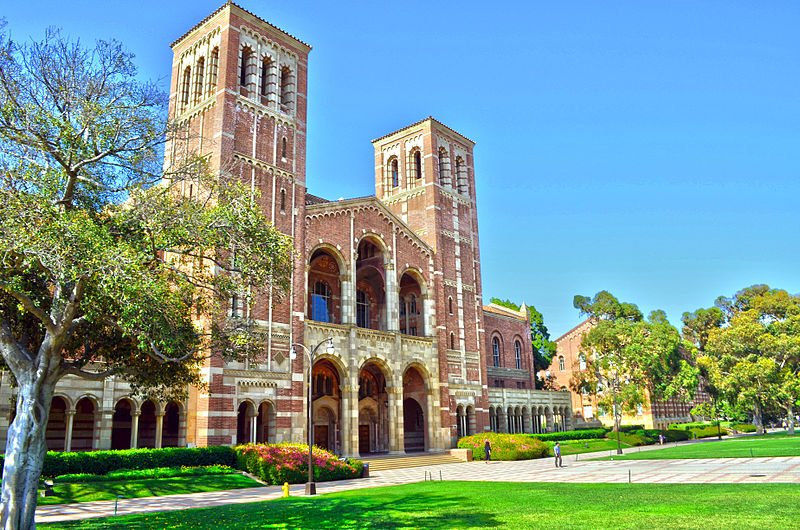 In recent years, rhetoric pertaining to the American economy has become increasingly contentious. Resolving the atrophying sector of American manufacturing, dealing with a stubbornly-high unemployment rate and striking an equilibrium between government and private markets mark a few of the most pertinent questions regarding the future of the American economy. In the last half-century, the rise in stature of the American economy from the post-war era to the leading global hegemon remains as a testament to America’s growing and vibrant middle class. The oft-mythologized presence of the “American Dream” — the protocol and set of procedures by which a comfortable, family-oriented, middle-class lifestyle is readily available to all has consistently been knocked from its perch as of late.
In recent years, rhetoric pertaining to the American economy has become increasingly contentious. Resolving the atrophying sector of American manufacturing, dealing with a stubbornly-high unemployment rate and striking an equilibrium between government and private markets mark a few of the most pertinent questions regarding the future of the American economy. In the last half-century, the rise in stature of the American economy from the post-war era to the leading global hegemon remains as a testament to America’s growing and vibrant middle class. The oft-mythologized presence of the “American Dream” — the protocol and set of procedures by which a comfortable, family-oriented, middle-class lifestyle is readily available to all has consistently been knocked from its perch as of late.
Among the tenets of the American Dream that have increasingly faced staunch opposition (such as more widespread homeownership) stands college attendance. In a recent report entitled “Should Everyone Go To College?” by the Center on Children and Families at the Brookings Institute, Stephanie Owen and Isabel Sawhill examined existing economic trends and models and deduced that perhaps many prospective students would, in fact, be best served by forgoing a university education. The study emphasizes that for most, college remains a lucrative investment, citing the average cost of a four-year bachelor program at $102,000 with a career-lifetime return of $570,000. Nevertheless, a large range of variations exists that drastically alters the prospect of attending college. For instance, the average return on investment (ROI) for a degree from the “Most Competitive” category of schools remains significantly higher, at nearly 11 to 13 percent, than a 6 to 8 percent return on investment from a “Noncompetitive school.” Moreover, variations in field of study, financial aid and graduation rate further complicate the economics of a bachelor’s degree.
Since the 2009 recession, other studies have honed in on the conjunction of a persistently soft labor market and increasingly expensive endeavor of pursuing higher education. According to research conducted by McKinsey & Co., nearly half of all recent college graduates currently hold positions that do not require a bachelor’s degree, not including those students that fall into the category of unemployed recent college graduates.
These alarming studies all point to convergent trends: during times of exceedingly tough economic prospects, the return on education as an investment often shrinks. However, inasmuch as these metrics reflect current perils, they also draw questionable and misleading conclusions. For starters, current studies value higher education according to monetary returns based on employment. Moreover, college provides many students with value that cannot be readily quantified, such as social factors, added time to better gauge marketable skills and the development of significant connections. These models also fail to account for unknown future trends. Perhaps the next economic upswing will increase the earnings gap between those with and without bachelor’s degrees, placing those who decided to forgo university at a considerable long-term disadvantage.
All in all, it seems quite evident that the global economy is in the process of undergoing a transformation and that with it comes a need to adapt to meet those changing contours. However, contrary to a recent shift toward rethinking college attendance, it would be prudent to err on the side of caution when deciding on the fate of one of America’s most successful institutions, which has long remained a pivotal element of economic growth. All evidence points to the notion that college still remains an essential component of economic success. As of April, the unemployment rate for college graduates was at 3.9 percent, compared to a national average of 7.5 percent for the workforce. Measures to reduce the costs of tuition and retool curriculum to adapt skills for new workforce demands will certainly contribute to increasing returns on college as an investment. Ultimately, though, efforts to urge students away from college attendance may have long-term detrimental consequences. Policy should be designed towards addressing the inadequacies in our education system, not avoiding it altogether.

